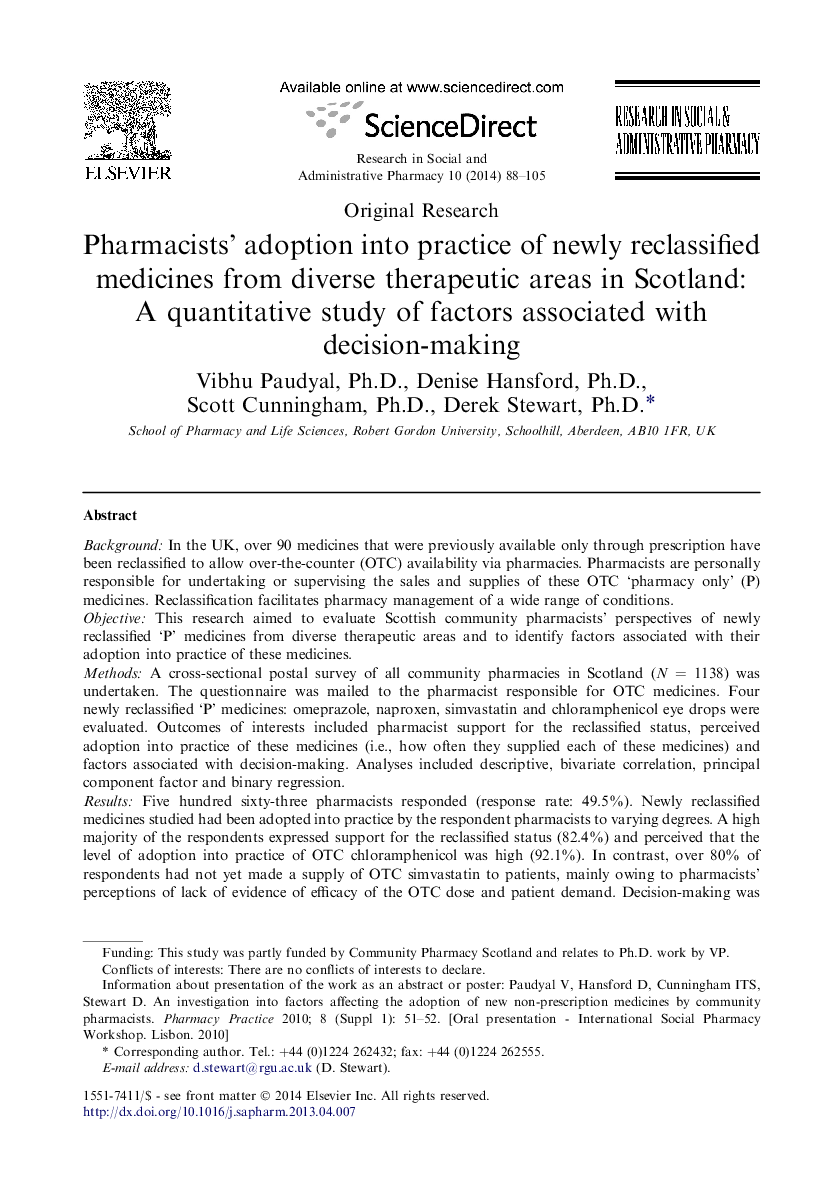| Article ID | Journal | Published Year | Pages | File Type |
|---|---|---|---|---|
| 2508709 | Research in Social and Administrative Pharmacy | 2014 | 18 Pages |
BackgroundIn the UK, over 90 medicines that were previously available only through prescription have been reclassified to allow over-the-counter (OTC) availability via pharmacies. Pharmacists are personally responsible for undertaking or supervising the sales and supplies of these OTC ‘pharmacy only’ (P) medicines. Reclassification facilitates pharmacy management of a wide range of conditions.ObjectiveThis research aimed to evaluate Scottish community pharmacists' perspectives of newly reclassified ‘P’ medicines from diverse therapeutic areas and to identify factors associated with their adoption into practice of these medicines.MethodsA cross-sectional postal survey of all community pharmacies in Scotland (N = 1138) was undertaken. The questionnaire was mailed to the pharmacist responsible for OTC medicines. Four newly reclassified ‘P’ medicines: omeprazole, naproxen, simvastatin and chloramphenicol eye drops were evaluated. Outcomes of interests included pharmacist support for the reclassified status, perceived adoption into practice of these medicines (i.e., how often they supplied each of these medicines) and factors associated with decision-making. Analyses included descriptive, bivariate correlation, principal component factor and binary regression.ResultsFive hundred sixty-three pharmacists responded (response rate: 49.5%). Newly reclassified medicines studied had been adopted into practice by the respondent pharmacists to varying degrees. A high majority of the respondents expressed support for the reclassified status (82.4%) and perceived that the level of adoption into practice of OTC chloramphenicol was high (92.1%). In contrast, over 80% of respondents had not yet made a supply of OTC simvastatin to patients, mainly owing to pharmacists' perceptions of lack of evidence of efficacy of the OTC dose and patient demand. Decision-making was influenced by factors such as perceived benefits to patients and pharmacy practice; e.g., respondents who agreed that reclassified naproxen was a good opportunity to develop their professional role were significantly more likely to rate their support for the reclassified status highly than those who were unsure or disagreed (odds ratio = 3.7 (95% confidence interval: 2.1–6.7); P value <0.001).ConclusionsKey factors informing decisions to adopt the reclassified medicines into pharmacists' practice relate to perceptions regarding the benefits of reclassification to patient care and their professional roles. The results have relevance to future reclassification decisions.
